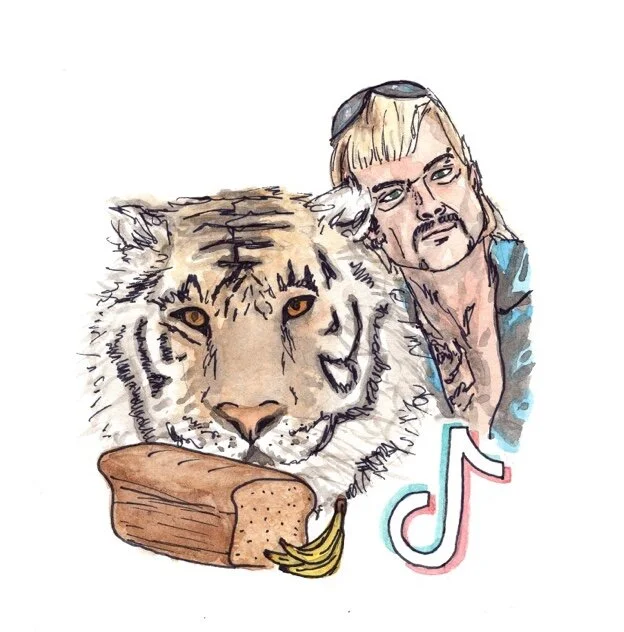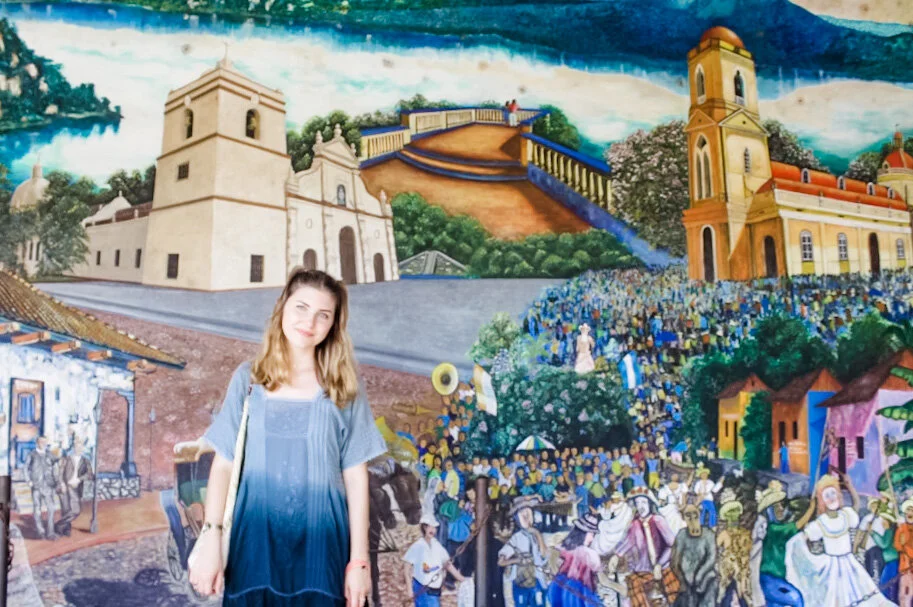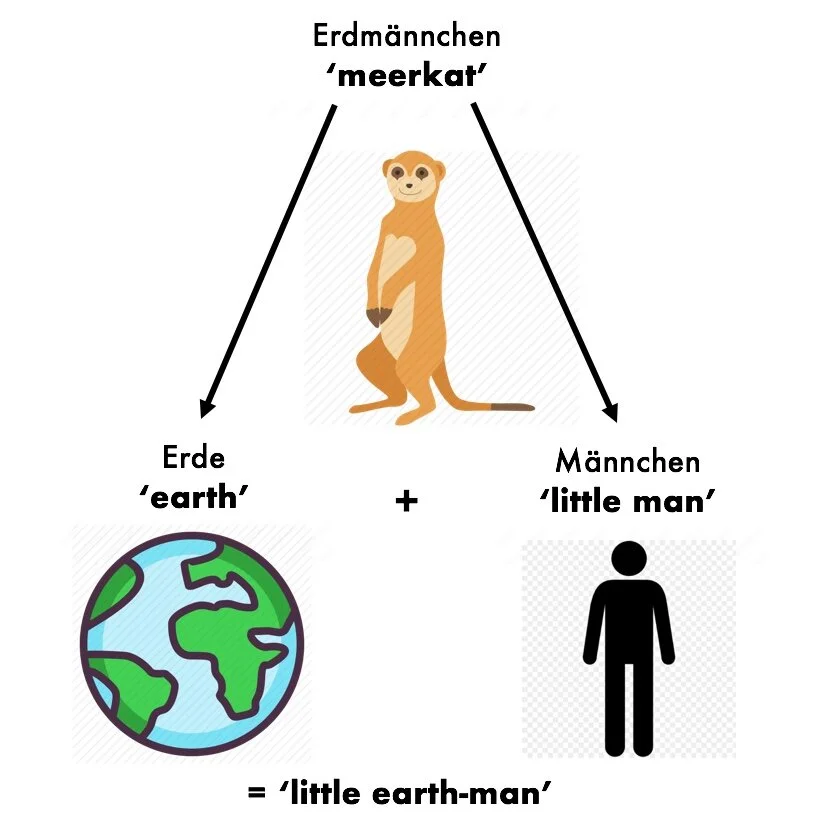Kendall's Story
Kendall at El Morro in San Juan, P.R. 📸: Kendall Mila.
My story recounts my experiences with learning French and Spanish. From childhood onward, my love of Spanish fueled my love of learning and led me to the field of linguistics, specifically Teaching English to Speakers of Other Languages (TESOL).
PRIMEROS ESTUDIOS (EARLY STUDIES)
My language learning days started early in elementary school when I was enrolled in a pilot program for a Spanish and English kindergarten class. I didn’t know at the time how important Spanish would be to my future self. All I remember was making projects like little booklets in Spanish, watching videos and learning new vocabulary related to this new language. I came home from school one day proud of my Caperucita Roja (Little Red Riding Hood) booklet, and my parents, proud of my new abilities, would have me speak what little Spanish I knew to customers at their store and would show off my fairytale booklet. I was an adventurous and precocious child in every sense of the word, so I felt confident showing off my language skills, and looking back, these were the carefree days of learning a new language and naïveté regarding the difficult challenges I would face later in my journey with Spanish.
From middle school to high school, I expanded my vocabulary exponentially. I had several middle-school teachers who were native English speakers, and they inspired me and made it seem possible that someday I too would be a native Spanish speaker.
While in middle school, I travelled to France with my family. This was my first trip abroad, visiting a new country where I didn’t speak the language, and I felt so self-conscious that I was studying a French dictionary on the plane. The woman sitting next to me on the plane must have noticed my curiosity for the language and she, being a native speaker, kindly took it upon herself to help me study. She pulled out a piece of paper and started teaching me phrases I was interested in learning—how to greet people, how to order food—phrases which I would use constantly on my trip. Not only was her short lesson something I’ll never forget, but it was her joie de vivre (joy for life) and love of France that made me eager to begin my trip abroad.
High school, however, was more discouraging when it came to certain aspects of my Spanish language-learning life. During my junior year of high school, we had no textbooks, and our language teacher had abandoned efforts to supplement materials. I felt lost since my strong suit in Spanish was always writing and reading. Without any materials to draw upon or support from our instructor, I was left without a guide in my class. It’s difficult to learn an advanced form of a language in isolation.
Out of frustration, I decided to take a break from studying Spanish the next year of high school. This was the first and only time in my life that I would take a break from Spanish. Not wanting to give up on languages entirely, I turned instead to a new language that had intrigued me for some time: French. I turned to French for comfort at a time when I felt lost without Spanish, and French reassured me of my love for learning languages. French had a mysterious quality to it and yet its roots were familiar to me, as if I were returning home and eating my favorite home-cooked meal. French was a language I had heard at home, since my mother and sister practiced it together. The pronunciation was definitely a hurdle at times, since I was used to pronouncing EVERYTHING in Spanish, and French loved to leave off sounds here and there pêle-mêle (willy-nilly), it seemed. I felt like I never needed to conjugate verbs when speaking since all final sounds were left off! Exploring the French language was rewarding: it made me appreciate the first country I had ever visited as a young girl even more, renewed my love of learning languages, and made me want to return to France in the future (or another French-speaking nation) in the future. Although I had a newfound interest and appreciation for French, I could not help but feel, analogous though the languages were, that Spanish was where I wanted to focus more of my time and efforts. Feeling motivated after taking French, I vowed to return to my first love, Spanish, upon entering college.
When I attended the University of North Texas (UNT), my entire world changed. Suddenly, I was free to learn whatever I wanted. I was paying for college all on my own, so I chose my classes thoughtfully and purposefully. This was the time to find my passions and decide what I wanted to be when I graduated. But discovering what I wanted to major in did not come to me as easily as it had to many of my friends and classmates. I had to explore many disciplines before deciding.
DOBLE ESPECIALIZACIÓN (DOUBLE-MAJORING)
At UNT, I decided to double major in my greatest passions, English and Spanish, for my bachelor’s degrees. All classes that I enrolled in would be new opportunities to test out my strengths. I found myself learning about different parts of the world with my Spanish classes. Concurrently with my study of Spanish, I pursued my other great passion—writing. Writing had comforted me my whole life and, like Spanish, it had started in childhood. Writing was and is what connects people across time and space.
While working at the UNT Writing Lab during my graduate career, I worked closely with international students on their writing assignments: personal and professional papers, dissertations and theses, and scholarship applications. I began to see the power of helping others through their writing. It gave me the chance to improve people’s lives, whether they were writing an essay for an English class, a résumé, or an essay for a Spanish class. This love of writing and of teaching helpful writing tips would also help me work with students as a language teacher later in life.
What was fascinating about language classes in college was that my teacher’s country of origin and linguistic background affected the vocabulary that I would learn from him/her. There are over 20 countries in the world that have Spanish as the official language, but variation exists within each country or region.
Certain vocabulary words stayed the same across different regions that spoke Spanish. “Love” was always amor, most verbs remained the same: e.g., hablar, cantar, vivir, and respirar. But in Puerto Rico, we could say guagua when referring to a truck, while in other countries, camión would be used. Variation exists among food-related vocabulary: helado was the word I had learned for “ice cream” (it also means “frozen”), but in Puerto Rico, the word used more commonly is mantecado. In and outside of the classroom, from textbooks to text messages with classmates and friends, I was learning fascinating new vocabulary each day.
One of my undergraduate professors at UNT spoke to me because of her fascination with learning and teaching languages from a linguistic point of view. I had no idea that I could use linguistics to further my study of Spanish. After taking every Spanish Linguistics course available at the time, I decided that I would continue this major into my graduate degree. By majoring in linguistics, I had the opportunity to study not only Spanish but other languages, and it allowed me to combine my love of teaching English into a major that I loved.
I’ll never forget my first class in graduate school where I learned about language variation in English. My mind continued to expand and learn about differences I had not noticed all around me—differences and similarities across all languages around the world. What had seemed like strange occurrences in Spanish or French suddenly became patterns. Again, everything was linked, and I felt a new appreciation for languages—another facet to the jewel of language learning was revealed to me.
In linguistics, I found comfort and compassion for all language learners and for my past self as a young Spanish and French learner, and I slowly started to replace all of those imperfections I felt about myself of not being a “fully native speaker”. I now saw myself as an evolving language learner, one free from discrimination. And it was through a linguistic lens that I first saw how being a language learner would be an ever-evolving journey, one filled with blood, sweat, and tears. But above all else, my journey would be filled with laughter, love, and sweet memories of speaking a new language.
ENRICHING ESL EXPERIENCES
While studying at UNT in 2012, I worked as an ESL teacher for a summer English language camp, which aimed to provide international students with a culturally immersive ESL experience in Denton. When that program expanded in 2013 and was run by Lisa Jeon, it became the American Culture and Communication Program (ACCP). For the next three summers, my role expanded as well. By day, I would work in the classroom: teaching students new vocabulary and grammar, working with them on-campus as they conducted surveys, wrote blogs, shot videos, and created cultural projects. At night, we would have our cultural activities: movie night, karaoke night, game night, sports/fitness activities, dancing night, baseball games, and excursions around Dallas/Fort Worth. I feel privileged to have been involved in such an enriching program for over three summers. Some of the greatest friendships of my life were formed from my time with the ACCP.
LA ISLA DEL ENCANTO/ PUERTO RICO
After graduate school, I travelled, for the first time in my life, to Puerto Rico for a family vacation. I had always expected to travel to Mexico my entire life and surprisingly I have still not made it there yet (pero voy a visitar mi querido México en el futuro, lo prometo). Seeing the beaches of Carolina, the caves of Camuy, seeing El Yunque, eating AMAZING food everywhere like the los kioskos, and going to the Arecibo Observatory brought so much richness to my life. All around me were signs in Spanish. Everyone I met spoke the language of my childhood, the language I had studied, and the language I adored. New faces were all around me. The wind, el viento. The sea, el mar. The island was full of life, history, and culture, and it felt a world apart from the U.S.
One interesting tidbit about Puerto Rico is that its current citizens are descendents of the native Tainos, African slaves, and Spaniards. The original native Puerto Ricans were called taínos/taínas, and along with their rich culture, they brought many new words to the Spanish language. Tainos brought words like hamaca (“hammock”), yuca, huracán (hurricane), and iguana into Spanish. These words have made their place in the English language and are well-known to native English speakers. After their lands were invaded by Spaniards, the Tainos sadly became slaves and were abused in other forms. Although la Raza forever changed history and impacted these populations affected by Spain, the strong and influential boricuas (from borinqueño/a) and their positive impact on the world will not be forgotten. Once you have visited a new land, you learn its customs and traditions. Even referring to themselves as boricuas instead of puertorriqueños sets these islanders apart.
LANGUAGE LOVER TURNED LINGUIST
Thus far in my journey as a linguist, I have worked as an ESL teacher, helping international students at intensive English institutes and language centers. I have worked with graduate and undergraduate students to improve their writing skills, helping students across the language-learning spectrum—from beginner-level students in their first intensive English-language classroom to PhD students working on their dissertations after studying English for decades. I am glad to have worked on summer English camps, and I am so glad that the ACCP will be offered at LanGo Institute in summer 2019!
My goal in life is to continue to aid students in their studies—whether they are learning to speak a new language or are working on improving their writing skills (academically or creatively). I want to see my students succeed in their academic pursuits and become productive global citizens. We share this world that we live in, and we need to uplift and inspire one another. We have so many opportunities to learn about other cultures when we learn a new language and surround ourselves with new people—like our fellow LanGo polyglots!
My studies have shaped the person I have become, but alongside these academic pursuits, I have gained essential cultural knowledge about muchos países y los hablantes nativos. Because of this, I believe that while learning a new language, we need to keep an open mind, have respect for different learning styles, and appreciate people’s cultures and customs.
































Tools for helping you master some of the trickier points of German grammar, whether you’re learning it for the first time or wanting to review the fundamentals. Los geht’s!